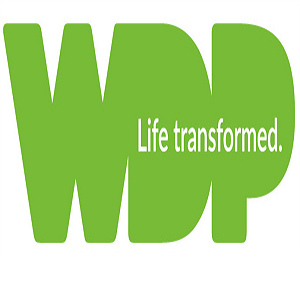Drug & Alcohol Rehab in Cheshire

How Does Rehab Work?
Rehab involves many strategies that are created to deal with individual addiction with support, wellness methods, and steps to restore good mental health. Clients are introduced to life-changing, supportive, and therapeutic programmes that are led by experienced and professional therapists. Along with individual therapy, individuals can benefit from the support received from group sessions. Addictions are treated with an inpatient or an outpatient programme. For those who enter an inpatient rehab programme, the programme requires that you remain inside the centre or the facility for the duration of treatment. Outpatient services are an option for those with less severe dependencies and will meet with a counsellor weekly while attending work commitments and staying at home.
What Happens During Residential Rehab?
Taking the brave step towards recovery starts with rehabilitation. It is a process, and it takes time but with dedication and support relapse can be prevented. If you’re unsure about what rehab entails, we provide a breakdown of what to expect.
Rehab occurs in stages. It starts with a medical assessment. Individuals must be professionally assessed to help staff understand the nature of your dependence, its history and comorbid disorders (such as bipolar or schizophrenia). The information obtained from the assessment is used to create a unique therapy programme for you. Because every person is unique, a personalised treatment plan will help provide a more tailored programme that meets your needs and requirements.
The next stage of a rehab programme is detox. Detoxification from substances requires the removal of the drug or alcohol from the body, typically over a period of time that limits withdrawal symptoms. Detox should ideally be monitored professionally to assist those with withdrawal symptoms. When the substance is removed from your system, the next stage of treatment begins (therapy).
Therapy is an important part of the rehab process and every aspect of treatment must be tailored to address individual backgrounds, substance dependencies, and circumstances. Interventions can range from private counselling and cognitive behavioural therapy to building coping strategies, life skills, and attending group meetings.
1. Assessment

For any person entering rehabilitation, an assessment must be performed. It is a normal procedure meant to put your mind at ease as the specialist looks for specific behaviours, previous mental health problems, and general health. In an inpatient programme, it is expected to have an admissions screening performed by telephone before booking you into treatment. Telephone assessments allow the treatment centre to determine the relevant programme for you. It will also provide staff with important information to customise support services during detox.
To help you or someone you know, receive the best possible therapy for addiction and substance use, it is important to receive an individual assessment by a dedicated professional. The assessment will assist the direction of therapy including treatment for those with comorbid illnesses such as anxiety.
2. Detox

Detox is a period in which drugs and alcohol are no longer taken and cleared from the body. It is a process that is best managed by medical staff in an inpatient facility.
The reason medical detoxification from substances is advised is owed to the difficulties and the nature of withdrawal symptoms that may occur during this time. Without reliance on a professional service and medical attention, the risk of relapsing is heightened. Individuals who receive detox and an assessment will be required to participate in a therapeutic programme that involves residential rehab or outpatient services.
3. Therapy

Therapy includes the one-on-one and group sessions you will attend with a qualified therapist, counsellor, and support staff. Treatment is delivered in both a residential rehab or as part of an outpatient programme. The direction for therapy will depend on individual needs.
Step by Step Process for Residential Rehab
To understand your medical and mental health history.
Arrange a suitable date to begin your journey to recovery.
Begin the managed withdrawal process from substances including alcohol.
To understand the root cause of addiction and how to overcome it.
Aftercare is provided to help manage the risk of relapse.
To help heal the wounds that addictive behaviour has caused others.
Find your Nearest Rehab Centre near Cheshire
The nearest rehab centre is Oasis Recovery Runcorn.
Address: Oasis Recovery Runcorn – Drug Rehab & Alcohol Rehab Cheshire, 38-40 Bridge St, Runcorn WA7 1BY, United Kingdom
Call 0333 4444 432 to discuss your alcohol or drug rehab requirements and any other questions you may have about the process of residential rehab.
Outpatient Addiction Services in Cheshire
To better understand which type of treatment will assist you in your journey to overcoming dependence, it is important to understand the differences between outpatient and residential rehabilitation. Outpatient rehab can be very useful as it provides a flexible and cost-effective alternative to residential rehab.
An outpatient service does not require individuals to stay at the residence for therapy. If you have work, family, or other commitments, outpatient programmes allow you to concentrate on these areas while visiting a centre or counsellor to receive addiction therapy and other support services.
If you are interested in pursuing outpatient treatment, it is vital to find a relevant programme that suits your needs. Outpatient programmes range from paid private counselling to free charitable organisations that specialise in substance dependence.
The Benefits of Outpatient Services
Private Outpatient addiction services also provide tailored care for those looking for the best possible support and chances of recovery. – Owing to the flexibility of outpatient therapy, it can facilitate a wide range of individuals and financial situations. Recovery sessions are attended once/twice weekly under the guidance of a certified therapist or counsellor. – It is more cost-effective than an inpatient programme.
The Challenges of Outpatient Services
Outpatient services will always have a crucial place in rehabilitation but for alcohol and drug addiction, staying at home with access to substances and regular social circles may risk relapse. Furthermore, free outpatient services provided by the NHS or UK-based charities do not provide the same tailored programme that private outpatient services provide, and there is typically a waiting list before you can be accepted for treatment.

How Much Does Rehab Services Cost in Cheshire?
Alcohol or drug addiction treatment in a residential setting typically costs between £1500- £4000 per week. If private addiction treatment is not an option, our goal is to help you locate the appropriate recovery programme that suits your budget requirements.
One example of a free addiction treatment service is that provided by Turning Point. Turning Point provides a number of structured support programmes to deal with both alcohol and drug problems. It is a self-referral service. Apart from charities such as Turning Point, you should consider private therapy or one of the many free support groups such as Narcotics Anonymous (NA), Cocaine Anonymous (CA), and Alcoholics Anonymous.
Support Groups in Cheshire

Northwich Sisters Of Sobriety Physical & Online
Carers Centre, 146 London Rd CW9 5HH

Northwich Online
Northwich Methodist Church, 163 Witton St CW9 5EA

Northwich Lostock Gralam Living Sober Online
Lostock Gralam Community Centre, Stubbs Lane, Lostock Gralam CW9 7PU
The Pros and Cons of Seeking Treatment in Your Local Area
Pros
1. You are familiar with the area which may provide a layer of comfort/safety.
2. Loved ones can easily travel to visit or are close by.
3. You may save on the costs of travelling long distances for addiction treatment, or free services may only be offered in your area of residency.
Cons
1. A local environment means access to drug dealers or other triggers. This is more of an issue if you decide upon outpatient programmes.
2. Not considering locations outside your area could mean missed opportunity for more valuable and rewarding programmes.
3. Addiction treatment programmes that are close by don’t always offer the best standard of treatment.
If you are unsure of how to look for a rehab service you can trust, consider the CQC. The CQC website offers listings of rehabilitation services and organisations that are ranked according to the standard of its services.


